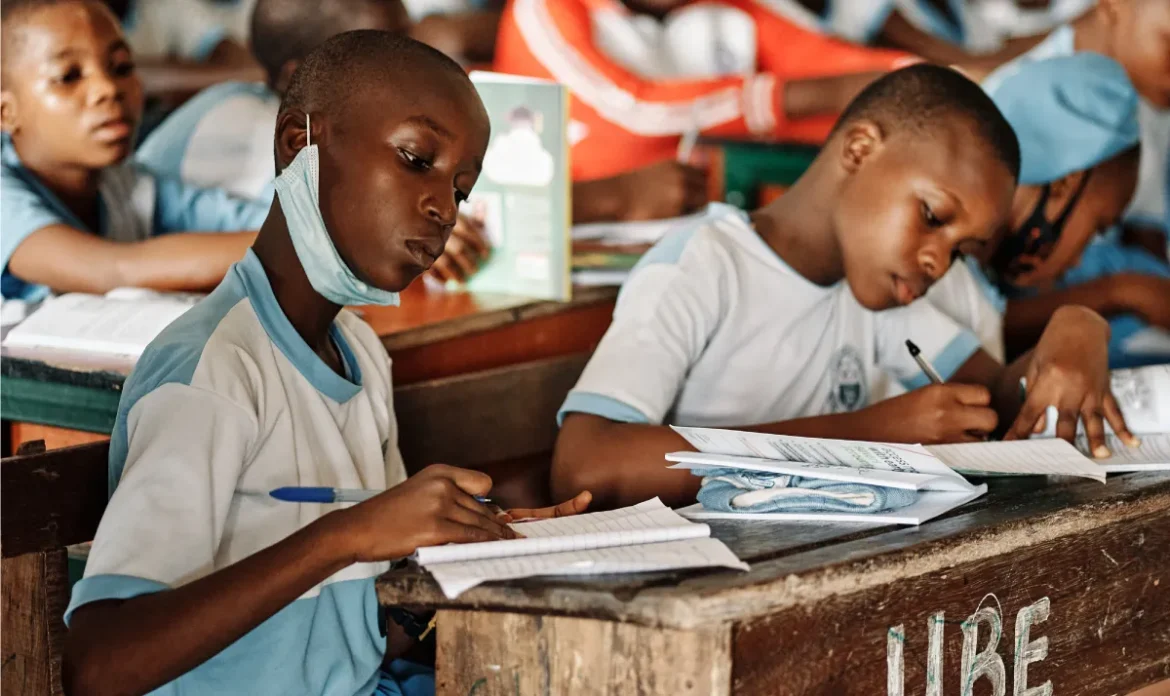
The recurring strike action by primary school teachers in public schools in the Federal Capital Territory, the nation’s seat of power, over wages is abysmal and repugnant.
But what do you expect when virtually all the people in charge have enrolled their children in private schools or sent them abroad? The FCT is undergoing a robust upgrade with various capital projects, particularly roads and bridges.
Undoubtedly, construction, rehabilitation of the roads, and the like are important. However, when more concentration is on such social infrastructures and less attention is on the well-being of children, it becomes a disarray of priorities. The health and education of children must take precedence.
This is on account that the two determine the future of any society. Governments should not lose sight of the fact that education has critical positive impacts on children and society. Without quality education, children face considerable barriers to employment later in life.
So, children who lack proper training are more likely to suffer when they become adults. This can give a clue of the alarming prevalent vices including corruption, banditry, armed robbery, and killings for ritual purposes, among others in virtually all parts of the country.
A visit recently to the National Assembly complex where all manner of hyper SUV cars are daily displayed by lawmakers, elected representatives of the people (so to speak) attests that something may be wrong with our reasoning as a people. If we are to talk about our lawmakers’ jumbo allowances amid masses suffering, sadly allocated by them, in short, let’s not go there today.
It is worrisome that up till now, governments have not grasped that the survival of the nation lies in children considering that they are the future of the society.
If they are well developed, brought up, empowered through education, and sound health, the future will be safe, and vice versa.
This accounts for the reason many young people have taken over the forests and bushes as bandits, kidnappers and terrorists. Undeniably, children’s well-being cannot be overemphasised, and children’s rights are human rights that should be protected and promoted.
This applies to both boys and girls, and categorically, to survive, develop, thrive, and be protected. Healthy development of children is crucial to the future well-being of any so ciety, and because they are still developing, children are especially vulnerable – more so than adults – to poor living conditions such as poverty, inadequate health care, nutrition, safe water, housing, and environmental pollution.
According to statistics, about seven million babies are born every year in Nigeria, and about 262,000 of these babies die at birth every year while almost double of this number die before their fifth birthday. Nigeria accounts for the second-highest national total for neonatal mortality in the world.
These figures are verifiable. In other words, there is a need to accelerate the Sustainable Development Goals (SDG) target. Goal – 3 (2) target is to end preventable deaths of new-borns and children under five years of age by 2030, with all countries aiming to reduce neonatal mortality and under-5 mortality.
To achieve these, Nigeria must wake up from its slumber to rapidly accelerate the under-five mortality rate reduction from 1.8% to 16.5% per year.
Across the nation, 30% of infant mortality is due to delivery problems with 50% of deaths happening on the first day and 75% within the first week. Neonatal fatality in the Northwest state of Kaduna is 63 deaths per 1,000 live births, four times higher than in the Southwest.
The slow uptake of antenatal care – especially among young, poor, and rural women – is one reason babies do not survive beyond one day.
While almost half of all women gave birth in a health facility, only 36% of women in rural areas gave birth in a health facility compared to 74% of women in urban areas.
Again, in Nigeria, 79% of new-born deaths are due to three preventable causes: infections, complications during childbirth, mainly asphyxia, and prematurity.
So, a greater focus on quality of care around birth and care of small and sick new-borns is paramount. During an assessment tour led by the Director-General of Cross River State Primary HealthCare, Dr. Vivian Out, to the Sick-Babies Unit of the University of Calabar Teaching Hospital (UCTH) and Calabar General Hospital, found out that although oxygen was available, there was still a critical need for more incubators, nurses, and drugs at subsidised costs to ensure optimal outcomes.
Please follow and like us:


